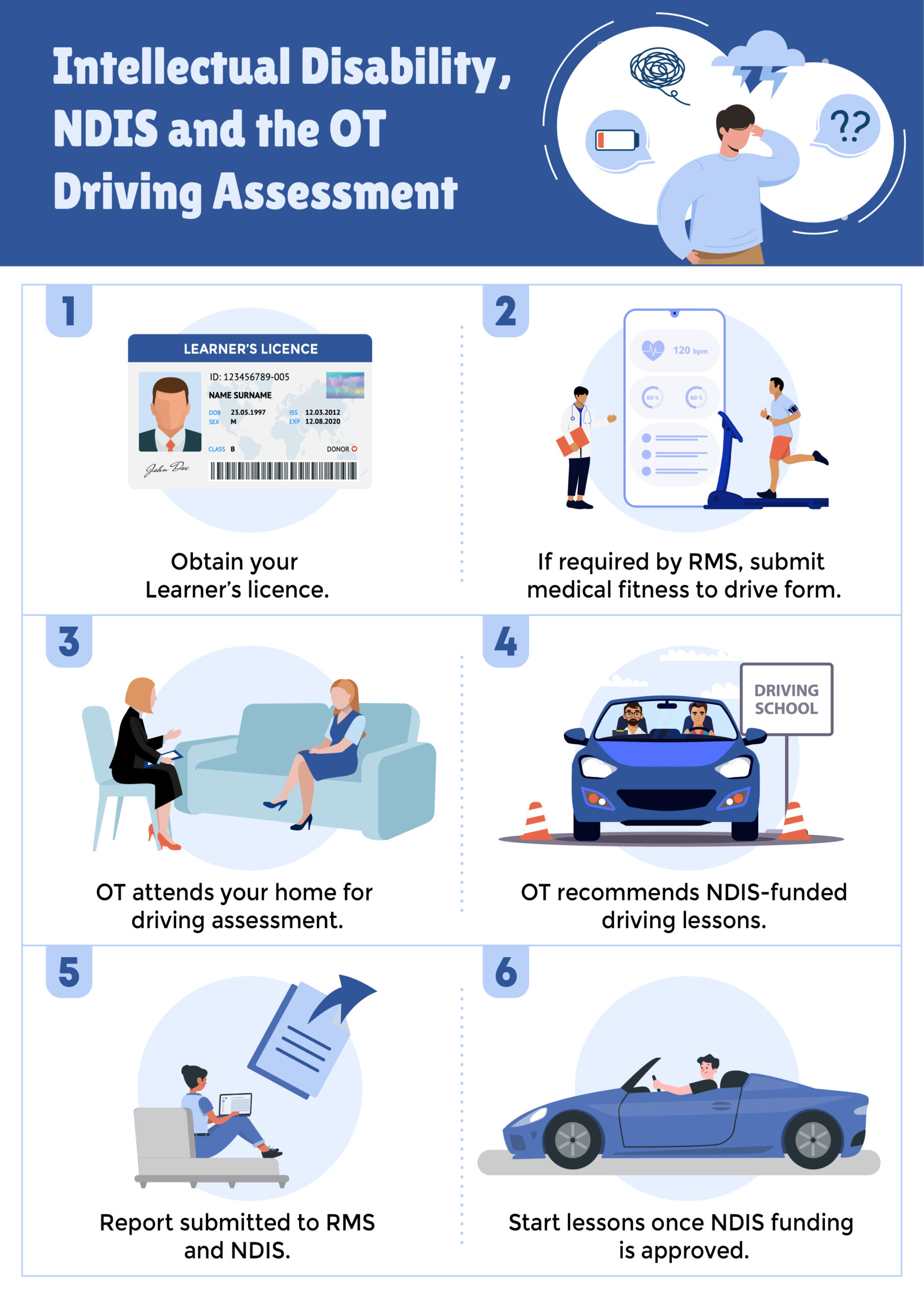People with an intellectual disability can learn how to drive and obtain their licence, however often have additional challenges that may impact on their driving capacity. This article will outline possible difficulties people with intellectual disabilities may face in relation to driving, as well as the process involved for an Occupational Therapy Driving Assessment.

What is an intellectual disability?
An intellectual disability develops during a person’s childhood years (the developmental stage) and is indicated by below-average intellectual functioning and is clinically diagnosed when one’s IQ is 70 or under. An intellectual disability affects individuals in various ways, however often, difficulties are seen in communication, social skills, learning and self-care. It is a lifelong condition and a person with an intellectual disability will commonly need ongoing supports from family, friends, carers or formal support services.
How can an intellectual disability affect driving?
Examples of how an intellectual disability can influence driving performance include:
- Difficulties with reading and processing of information – drivers may not be able to process road signs or other visual information (e.g. a vehicle’s dashboard) quickly while trying to complete other tasks.
- Distraction and impulsivity – it may be difficult for drivers to focus on the road and their driving and ignore the distractions around them.
- Deficits in short-term memory – drivers may have challenges following directions, e.g. from a GPS or map.
- Problems with motor skills – people with intellectual disabilities may also have dyspraxia, and thus may have trouble planning and completing body movements, as well as deficits in hand-eye coordination. In driving, this may result in difficulties maneuvering the steering wheel or changing lanes.
- Problems with visual and spatial awareness – drivers may have poor directional sense, have complications estimating distances or travelling times. These challenges can cause difficulties when reading maps, deciding how far away another car is and how fast it’s travelling, and parking.
- Problems with executive functioning and problem-solving – drivers may become easily overwhelmed in the event of an accident or an unplanned even when driving, such as a detour or missing an exit.

What is an OT driving assessment?
As an intellectual disability is a medical condition that can potentially affect driving ability, it is mandated by law to declare the condition to the RMS. In order to assess if the person’s intellectual disability is impacting on their driving performance, they must complete an Occupational Therapy Driving Assessment. This assessment consists of two sections:
- The off-road assessment: The Occupational Therapist (OT) performs a visual, cognitive and physical screen on the person to determine any notable deficits that may result in driving difficulties. If possible, a strategy or intervention will be developed to mitigate any deficits, such as using a vehicle modification for a physical disability.
- The on-road assessment: The person drives a dual-controlled car with the OT and rehabilitation driving instructor. The aim of the assessment is to identify whether or not the intellectual disability is affecting the person’s driving. Minor mistakes, such as those resulting from being unfamiliar with the vehicle, often do not negatively impact the assessment’s outcome. However, critical errors, which are defined as those requiring the driving instructor to physically intervene (by using the emergency brake or steering wheel), usually indicate a significant deficit in driving capacity.
In learner drivers with an intellectual disability, it is often not possible to comprehensively determine fitness to drive after an initial OT driving assessment, as learner drivers are expected to make errors and having difficulties during this stage. Thus, driving lessons are often indicated and specified by the OT, and a driving plan is developed with the driving instructor. Specific driving goals are refined at each stage of the person’s progress (e.g. lessons usually start in basic traffic and progress to moderate then heavy/complex traffic conditions as the person’s dri




